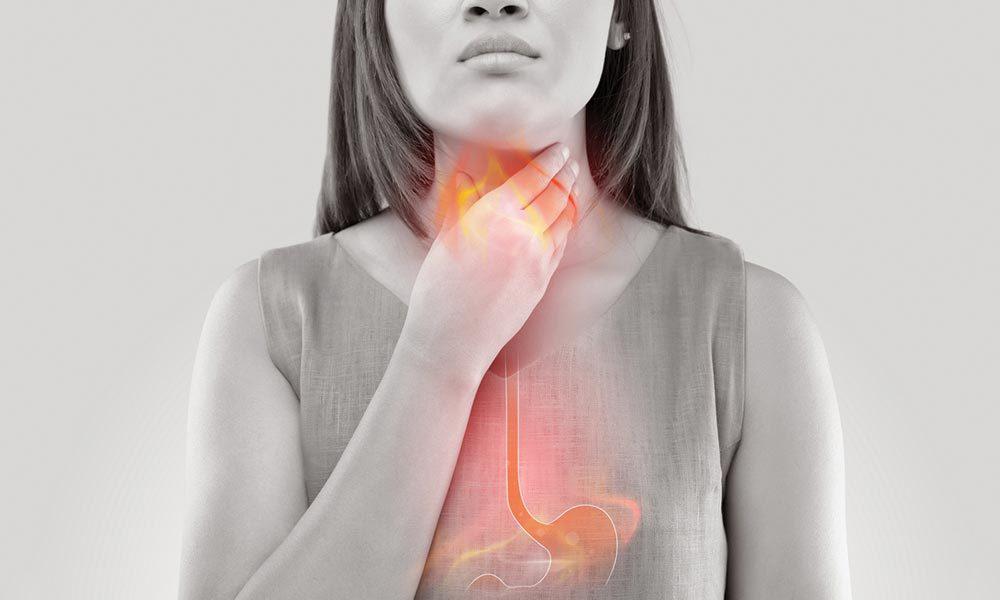
If you suffer from gastric issues such as heartburn, acid reflux, and nausea on a regular basis, it could be indicative of an underlying condition known as Gastroesophageal Reflux Disease (GERD). GERD affects people of all ages and can range in severity: some may experience uncomfortable symptoms on occasion, while others must manage their GERD with daily medication or other treatments. Fortunately, if you're dealing with GERD, there are steps that you can take to try to minimize the symptoms and stay comfortable. In this blog post, we'll discuss the causes of GERD, tips for reducing its symptoms day-to-day, foods to avoid eating to reduce flare-ups, and tools that can help you monitor your condition more effectively. As always, remember that it is important that any medical advice is discussed between the patient & doctor before taking action - don't let your health be compromised!
Understand the basics of GERD - what is it, what are its symptoms, and how is it treated?
GERD, or Gastroesophageal Reflux Disease, is a condition where stomach acid flows back up into the esophagus. This can cause a burning sensation in the chest, commonly referred to as heartburn. Other symptoms may include difficulty swallowing, regurgitation of food, and a persistent cough. While occasional heartburn is normal, frequent episodes can lead to damage to the esophagus and other complications. Common causes of GERD include obesity, smoking, and certain medications. Treatment options may include lifestyle changes such as avoiding trigger foods or losing weight, as well as medications to reduce stomach acid. Prevention of GERD may include maintaining a healthy weight and avoiding foods that trigger symptoms. It is important to talk with your doctor if you suspect you have GERD or are experiencing persistent symptoms.
Know your risk factors and lifestyle changes you can make to reduce them.
GERD, or Gastroesophageal Reflux Disease, is a medical condition where stomach acid flows back into the esophagus, causing discomfort and irritation. Anyone can develop GERD, but certain risk factors may increase one's chances of developing it. These risk factors include obesity, pregnancy, smoking, and a diet high in acidic and fatty foods. Fortunately, there are lifestyle changes that can be made to reduce the risk and severity of GERD. These changes include maintaining a healthy weight, avoiding trigger foods, quitting smoking, and eating smaller, more frequent meals. By taking steps to prevent GERD, individuals can improve their quality of life and reduce the risk of associated complications.
Eat smaller meals and avoid lying down right after eating.
Gastroesophageal reflux disease, or GERD, can cause a great deal of discomfort. While there are medical treatments available, there are also some simple lifestyle changes that can help prevent symptoms. Eating smaller meals throughout the day, rather than three large meals, can help reduce the amount of acid that your stomach produces. Additionally, avoiding lying down right after eating can help avoid the stomach acid from moving up into your esophagus. These simple preventative measures can help reduce the amount and severity of GERD symptoms you experience, leading to a more comfortable and healthy life.
Avoid caffeinated drinks, alcohol, and certain foods that can trigger heartburn.
GERD, short for gastroesophageal reflux disease, is a common digestive problem that can cause discomfort and pain in the chest and throat. One way to prevent this uncomfortable condition is to avoid certain foods and drinks that can trigger heartburn. Caffeinated drinks and alcohol are two common culprits that are known to cause irritation in the esophagus, leading to reflux and heartburn. Other foods like spicy, fatty, and fried meals can also lead to heartburn. By being mindful of these triggers and avoiding them as much as possible, individuals can help reduce their risk of experiencing GERD and the symptoms associated with it. So, if you're looking to manage your GERD symptoms, it's important to take heed of what you eat and drink.
Aim for moderate exercises like walking or simple stretching exercises.
GERD, or gastroesophageal reflux disease, is a common condition that occurs when stomach acid flows back up into the esophagus. While the causes of GERD vary, there are ways to prevent or minimize symptoms. One such method is through regular exercise, such as walking or simple stretching. Moderate physical activity can help improve digestion and reduce the likelihood of acid reflux. It's important to note that excessive exercise can actually worsen GERD symptoms, so aim for a routine that is gentle and manageable. Incorporating these types of exercises into your daily routine can lead to a healthier and more comfortable lifestyle.
Keep a food diary to help identify which foods aggravate your symptoms.
If you suffer from gastroesophageal reflux disease (GERD), you are all too familiar with the discomfort and inconvenience of its symptoms. Heartburn, acid reflux, and difficulty swallowing can disrupt your daily routine and cause distress. Keeping a food diary can be a simple and effective way to identify which foods may be causing or exacerbating your symptoms. By tracking what you eat, when you eat, and how you feel afterward, you can start to identify patterns and make informed decisions about your diet. While there is no known cure for GERD, prevention is key, and a food diary can provide insight and guidance toward managing your symptoms.
